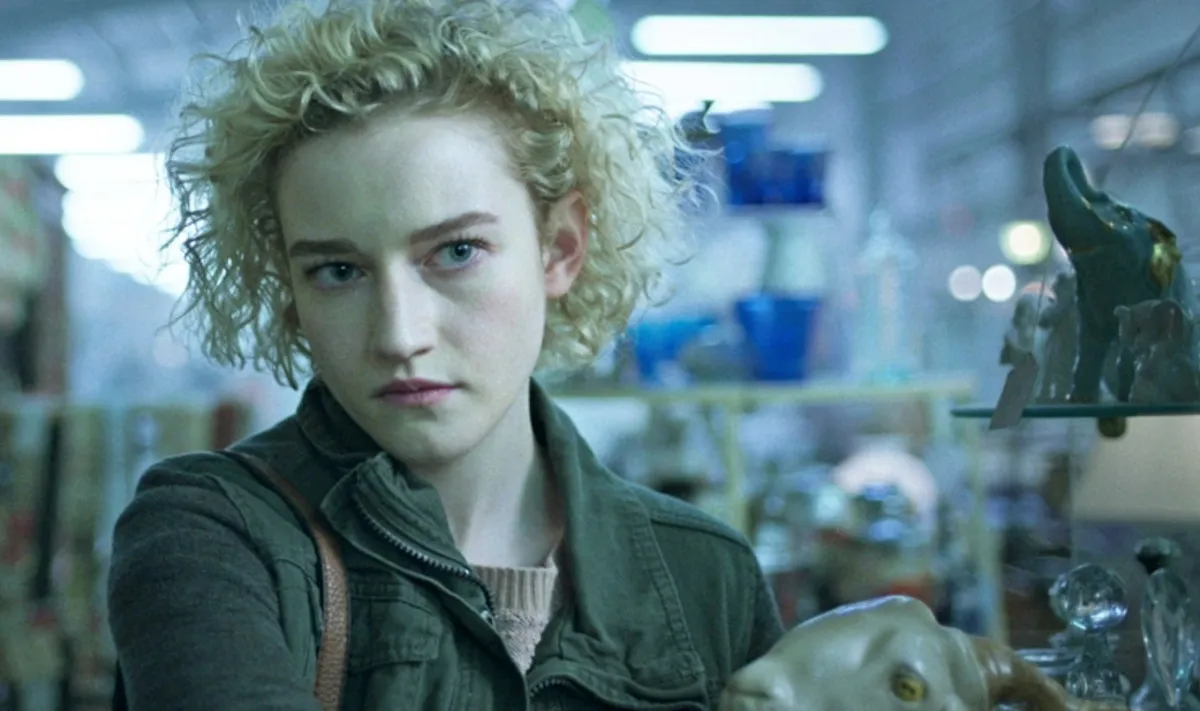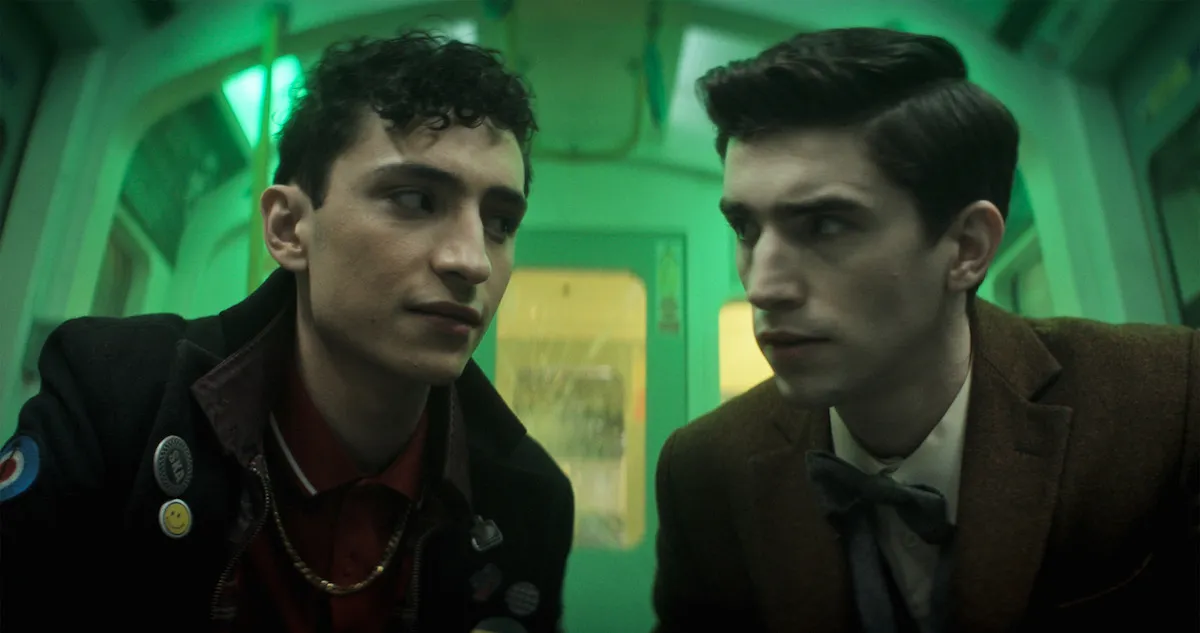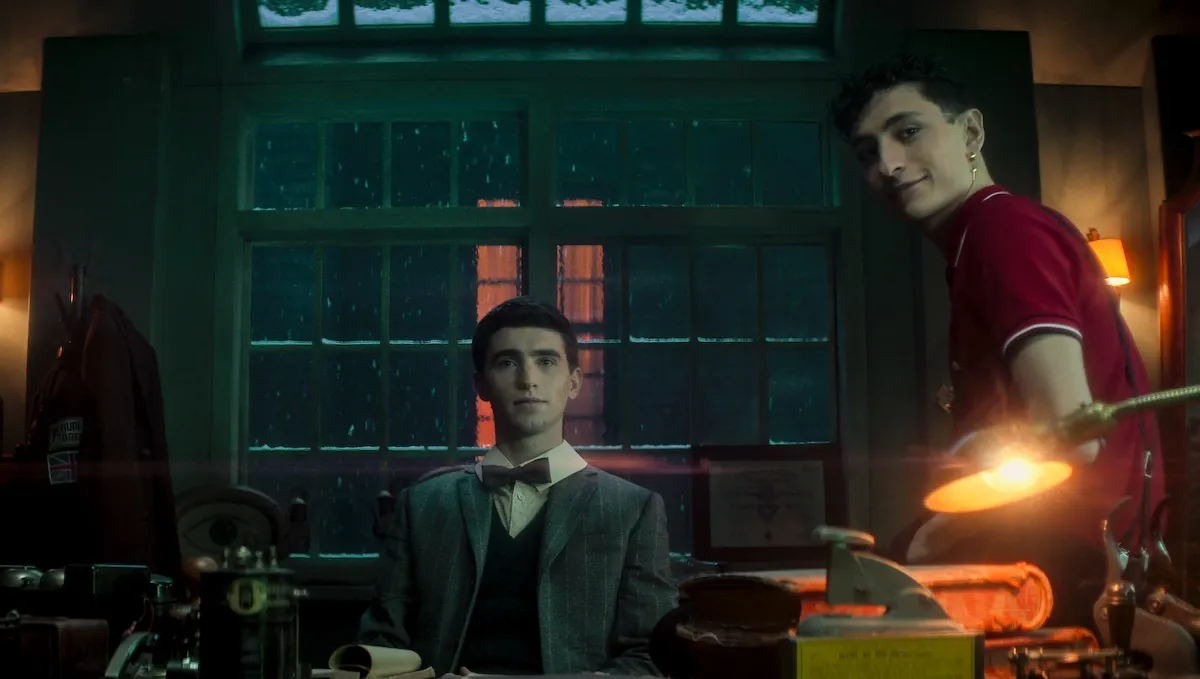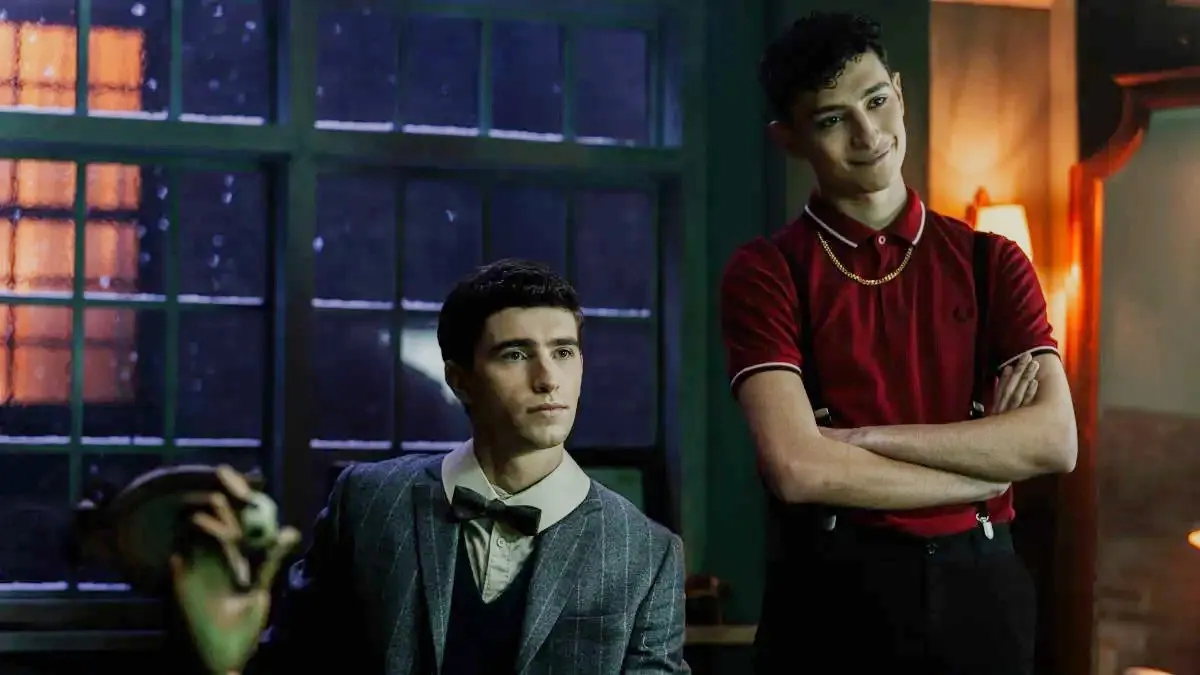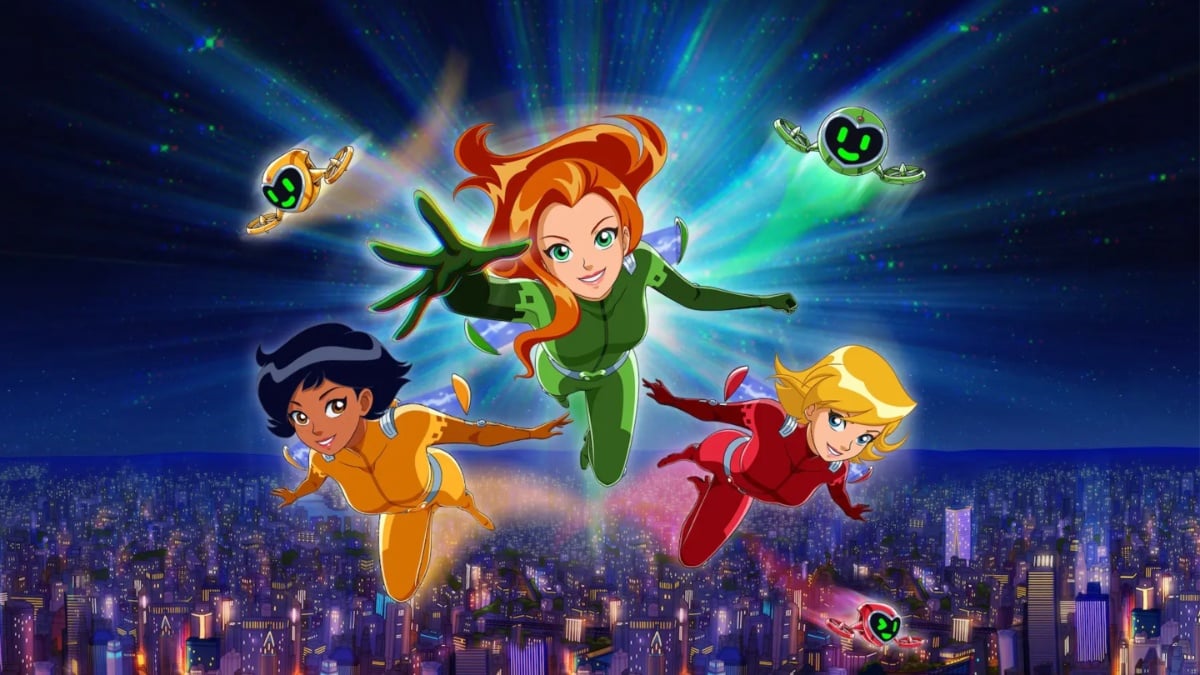I arrived late to Ozark, the popular Netflix drama about an American family that launders money for a Mexican drug cartel. As such I binged through four seasons and a whole lot of crime and death in a matter of days, fortuitously showing up just as the final, pandemic-made episodes aired. While the pandemic doesn’t happen in the land of Ozark, the show doesn’t need that additional layer of catastrophe; it already provides one of the bleakest and least hopeful representations of American life that I’ve seen.
Ozark is hardly what I would deem “realistic” in many of its outlandish twists and turns, but in this representation, its themes ring stark and true: our politics are corrupt, our mental health services are nil, our addiction rates are off the charts, our access to guns is unchecked, and the cycle of poverty can be all but impossible to escape. The show’s we-already-live-in-a-dystopia messaging crystallized in fan-favorite character Ruth Langmore and the fate that awaits her at Ozark’s end.
***Spoilers for Ozark seasons 1-4 and the series finale***
Ozark features longtime acting luminaries Jason Bateman as Marty Byrde and Laura Linney as Wendy Byrde, who uproot their family from Chicago to find greener money laundering pastures in Missouri’s Lake of the Ozarks region. As the central couple at the heart of the action here, Bateman and Linney do excellent work, and performances across the board are strong—it takes compelling acting to keep you grounded in some extremely over-the-top storylines. Yet the inarguable breakout star of Ozark is Julia Garner as Ruth Langmore, the whipsmart local girl who becomes Marty’s right hand and the de facto heroine of a show without heroes. Garner was nominated for a truckload of awards for her brilliant turn as Ruth, winning two Emmys for Best Supporting Actress in a drama. And so as Ozark’s final episodes bowed on April 29, 2022, audiences were extremely invested in what would happen to Ruth.
Just finished Ozark. One of the best TV shows ever with one of greatest all-time characters in Ruth Langmore. pic.twitter.com/FtE76TTbFc
— Christopher Snowdon 🇺🇦 (@cjsnowdon) May 12, 2022
What we received wasn’t the ending that almost anyone wanted to see—but it is an ending sadly faithful to the realities of modern America. Over the seasons, Ruth, who came from a family known for petty crime and lived in a dilapidated trailer, suffered an unimaginable amount of grief as the Langmores were pulled into the Byrdes’ orbit. She lost, in order, her two uncles (she electrocuted them to stop them from killing Marty), her father (killed by the cartel on Wendy’s orders), her boyfriend Ben (killed by the cartel with Wendy’s help), and her adored cousin Wyatt (killed as collateral damage by wannabe drug kingpin Javi). That’s five people close to Ruth killed brutally over the course of four seasons. But our indomitable Ruth soldiered on, appearing to come out on top as the show’s last season wrapped up. She purchased the riverboat casino out from under Marty, ran her own successful money-laundering operation, got her criminal record expunged (the first “clean” Langmore in generations), and set about building herself a grand house where her family’s trailers once stood.
For a moment, it appeared that Ruth had succeeded in achieving the so-called American dream—pulling one’s self up by the bootstraps of relentless ingenuity, becoming awash in cash, and settling down in a big house to enjoy it. So what if Ruth’s wealth was derived from ill-gotten gains? Show me an American corporation or billionaire’s profits that are not. Yet Ozark, which is perpetually dark in tone, wasn’t done with Ruth. The series finale saw her meet her end, gunned down by new cartel leader Camila in revenge for Ruth’s killing of her son Javi for killing Wyatt (if you’re just joining us, there is a lot of killing on this show).
Ruth faces death with guts and grit, as we might expect, in another tour de force performance from Garner. Still, I was shocked. “No,” I exclaimed while watching, “not Ruth!” My dismay was echoed across the Internet, where many outraged social media postings bemoaned Ruth’s fate. It seemed astonishing that Ozark would end with the murder of its most beloved and iconic character, who was finally, finally getting her due after so many torturous seasons of grief. But the more I’ve read interviews with the cast and creatives, and the more I’ve sat with Ruth’s death, the more it makes sense.
Ozark is one of the best TV shows I have ever watched.
— Dr. Tayo Oyedeji (@tayooye) May 17, 2022
Ruth Langmore is its best character.
But she is also a poster child for the fact that it is really difficult to escape generational poverty.
You keep hustling but it seems like there’s a millstone tied to your ankle.
The upward mobility that Ruth reached for simply doesn’t exist for the great majority of this country. The American dream isn’t real; it’s mostly a myth to keep people in their place, working too hard and dreaming of the day that things will magically change. The people who will always emerge on top are the Martys and Wendys, or, to paraphrase private detective Mel Sattem, the Kochs and the Kennedys. Ruth, like Wyatt, becomes collateral damage in the Byrdes’ self-involved quest to keep themselves safe and successful. They fail to warn her about Camila, because to do so would derail their own plans and endanger their family. To have it go another way for Ruth would be the fairytale ending we hope for, but fairytales are loftily unattainable by their nature. We’re used to seeing them play out on TV at least. But Ozark wouldn’t play that game, no matter what the audience wanted. Ruth dying is the opposite of fan service, but the cast and creatives ultimately deemed it necessary to reflect harsh realities.
Julia Garner spoke to this in an interview with Vanity Fair:
Asked how it felt knowing that Marty and Wendy survived but not Ruth, the actor said, “I can’t speak on behalf of Ruth, because she was dead by then. But as a viewer, it reflects real life in a way. The middle class, the poor, the dreamers almost always pay for it in a sense. The superpowerful people with all the money, at the end, they do okay.”
In this sense, Ruth becomes an almost Gatsby-esque figure—a new-moneyed dreamer who came up from nothing, flew too close to the sun and paid the price. She even dies in fancy dress next to her newly constructed pool, in what felt like a knowing Gatsby nod. Wendy and Marty, with their own relatively humble backgrounds, are hardly Daisy and Tom Buchanan, but a vast gulf on the social ladder still separates them from Ruth by the time they meet. (I am not the first or the only person to draw a Gatsby parallel here.)
I really do think Ruth Langmore is the hero of this story, and she is truly one of the great characters in TV right next to Wendy. It was a very Gatsbyesque type storyline for her from beginning to end. #OzarkSeason4 #Ozark #Ozarkfinale pic.twitter.com/7NewUhYBq1
— Ari Limbrick (@arilimbrick) April 30, 2022
The ultimate message that privileged American “royalty” will always win out over “the little people” is the actual note that Ozark ends on, once we leave Ruth behind. Private detective Mel Sattem thinks that he finally has the evidence to bring down the Byrdes for their laundry list of crimes. He gives an impassioned speech to this effect. “You don’t get it, do you?” Mel says. “You don’t get to win. You don’t get to be the Kochs or the Kennedys or whatever fucking royalty you people think you are. The world doesn’t work like that.”
But the world does work like that, as Mel is about to find out. “Since when?” Wendy responds to this statement, almost gently. And before the screen goes to black with the sound of a gunshot that no doubt ends Mel Sattem, we see the Byrdes’ young son Jonah with a gun, ready to defend his family and continue this especially American cycle of blood and money. The Byrdes have “won”—at great cost, yes, and at enormous moral failing—but they have still won. Ruth became a necessary sacrifice along the way.
Ozark showrunner Chris Mundy has spoken about Ruth’s controversial end, an end highly debated by the creatives on the show, who also might’ve liked a fairytale finish for Ruth. But they decided that in order to stay true to the way a life like Ruth’s might really turn out in today’s America, it had to go this way. “Kind of all of us in the room sort of saw at a certain point that it [Ruth’s death] felt like the story, if we were going to stay truthful to the story,” Mundy said. “It’s almost like you run into this dilemma about, are you trying to preserve the happy ending for the character that you love? Or are you trying to tell the story the way the story would actually play out?”
“They will tear everything you have to the ground,” Ruth says of the Byrdes at one point, “and somehow will make you feel like next time it’ll all be different because you want to believe.” It’s hard not to read in this line a condemnation of the whole American system, particularly our political parties, who make a raft of promises every election year while failing to do much that is different for their constituents once they are in office. Financial and social circumstances in this country have become progressively worse for the next generation, not better, with decades of stagnant wages, pushback against organized labor, staggering student loans, bitter cultural divides, and draconian laws returning or being added to the books. Ozark further explores the corruption endemic in the heart of our politics, showing politicians bought and paid for by moneyed interests or willing to compromise any value to win. They’re ostensibly in service to regular people like Ruth, but they’re in thrall to wheelers and dealers like the Byrdes.
I can’t believe they did Ruth Langmore like that 😫 Ozark was such a great series from start to finish tho pic.twitter.com/L7qPXp8WPT
— Andrés (@ayandress) May 13, 2022
As Real Simple writes, “Today’s American dream promises success to anyone who demonstrates consistent perseverance. Yet for those who live outside the tightly concentrated bubble of wealth in the United States, money is not a guaranteed outcome of hard work. In fact, achieving upward social mobility is becoming less common than ever before.” On Ozark, Ruth Langmore came to exemplify this failed American dream: surely no one on television in recent memory has persevered more consistently, worked harder, or endured more. But the promised social mobility slipped from her grasp, as the Wendys and Martys and Charlottes and Jonahs made it out the other side. Ruth’s fate isn’t what we wanted for her—but it is sadly, quintessentially American.
(image: Netflix)
Want more stories like this? Become a subscriber and support the site!
—The Mary Sue has a strict comment policy that forbids, but is not limited to, personal insults toward anyone, hate speech, and trolling.—



